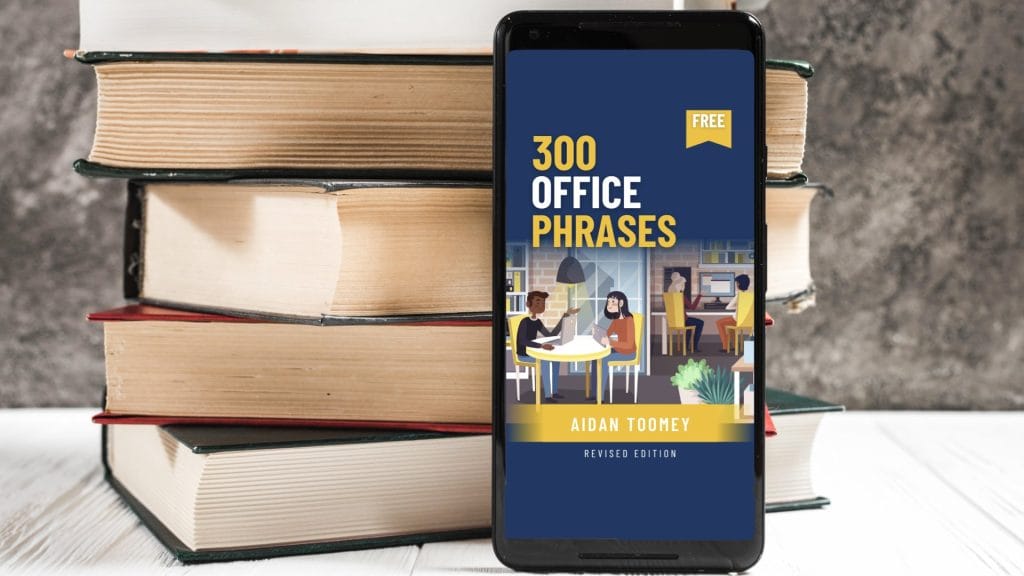
In the fast-paced world of engineering, technical expertise is only part of the equation. The ability to communicate your ideas clearly and effectively is just as critical—especially when working in international teams, presenting to stakeholders, or collaborating with non-technical colleagues. This is where Business English for engineers becomes a game-changer.
If you’ve ever struggled to explain a complex concept to someone outside your field or felt your ideas were misunderstood, you’re not alone. Engineers are brilliant problem-solvers, but translating technical jargon into clear, concise, and professional language can be a challenge. In this lesson, we’ll explore how you can master Business English to communicate your technical ideas with confidence and clarity.
Why Business English is Essential for Engineers
Engineering is a global profession. Whether you’re working on-site, in a design office, or presenting your latest innovation, you’re likely interacting with people from diverse linguistic and cultural backgrounds. Here’s why Business English skills are essential for engineers:
- Collaborating Across Teams: Engineers often work with cross-functional teams, including marketing, finance, and management. Clear communication ensures everyone is aligned.
- Presenting Technical Concepts: Whether it’s a client presentation or a project update, you need to explain complex ideas in a way that’s easy to understand.
- Writing Reports and Emails: Engineers frequently write technical reports, proposals, and emails. Using professional Business English ensures your writing is clear, concise, and impactful.
- Career Growth: Strong communication skills in English can open doors to international opportunities, leadership roles, and career advancement.
Common Challenges Engineers Face in Business English
Let’s be honest—communicating technical ideas isn’t always easy. Here are some common challenges engineers face and how to overcome them:
1. Overusing Jargon
Engineers love precision, and technical jargon is often the most accurate way to describe something. However, not everyone understands terms like “finite element analysis” or “shear stress.”
Solution: Simplify your language. Use analogies or examples to explain complex terms. For instance, instead of saying “thermal expansion,” you could say, “It’s like how a metal bridge expands slightly on a hot day.”
2. Being Too Detailed
Engineers are trained to focus on details, but too much information can overwhelm your audience.
Solution: Tailor your message to your audience. If you’re speaking to non-engineers, focus on the big picture and key takeaways. Save the technical details for your engineering peers.
3. Struggling with Tone
Emails or presentations can sometimes come across as too formal, too casual, or even unintentionally abrupt.
Solution: Aim for a professional yet friendly tone. Use polite phrases like “Could you please clarify…” or “I’d be happy to discuss this further.”
How to Communicate Technical Ideas Clearly
Now that we’ve identified the challenges, let’s look at some practical tips to improve your Business English communication skills:
1. Know Your Audience
Before you start explaining, ask yourself: Who am I speaking to? Are they engineers, managers, or clients? Adjust your language and level of detail accordingly.
2. Structure Your Message
A clear structure makes your ideas easier to follow. Use the “What, Why, How” approach:
- What: State the main idea or problem.
- Why: Explain why it’s important.
- How: Describe the solution or next steps.
For example:
- What: “The machine is overheating.”
- Why: “This could lead to a system failure.”
- How: “We recommend installing a cooling system to prevent this.”
3. Use Visual Aids
A picture is worth a thousand words—especially in engineering. Use diagrams, charts, or models to support your explanation. Visuals can help bridge the gap between technical and non-technical audiences.
4. Practice Active Listening
Communication is a two-way street. Pay attention to your audience’s reactions and encourage questions. This shows you’re engaged and willing to clarify any doubts.
5. Polish Your Writing Skills
When writing reports or emails, keep your sentences short and to the point. Use bullet points or numbered lists to organise information. Avoid overly complex sentences that could confuse the reader.
Useful Business English Phrases for Engineers (with Examples)
Here are some handy phrases to help you communicate effectively in professional settings, along with examples to make them easier to understand:
- Explaining a concept:
- Phrase: “To put it simply…”
- Example: “To put it simply, this design reduces energy consumption by 20%.”
- Presenting data:
- Phrase: “The data shows that…”
- Example: “The data shows that the new material is 30% stronger than the previous one.”
- Making suggestions:
- Phrase: “I recommend that we…”
- Example: “I recommend that we test the prototype under different conditions before finalising the design.”
- Clarifying or asking questions:
- Phrase: “Could you clarify what you mean by…?”
- Example: “Could you clarify what you mean by ‘optimising the process’? Are you referring to reducing costs or improving efficiency?”
- Summarising a discussion:
- Phrase: “To summarise…”
- Example: “To summarise, we need to adjust the design, test the new material, and prepare a report for the client.”
A Quick Example: Explaining a Technical Idea
Imagine you’re an engineer presenting a new design to a non-technical client. Here’s how you could explain it:
Technical Explanation:
“Our design uses a cantilever beam with a high modulus of elasticity to minimise deflection under load.”
Simplified Explanation:
“Our design uses a special type of beam that’s very stiff, so it won’t bend much even when heavy loads are applied.”
Notice how the simplified version avoids jargon and focuses on the key idea.
Final Thoughts
As an engineer, your ability to communicate technical ideas clearly can set you apart in the workplace. By mastering Business English for engineers, you’ll not only improve your professional communication but also build stronger relationships with colleagues, clients, and stakeholders.
Remember, effective communication isn’t about dumbing things down—it’s about making your ideas accessible to everyone. So, the next time you’re explaining a complex concept, take a step back, simplify your language, and watch your audience nod in understanding.
And if you’re looking for more tips to improve your Business English, don’t forget to check out our FREE resources and lessons. After all, even the best engineers need a little help translating their brilliance into words!
Why Not Watch this Video Below On How to Unlock 6 Engineering Drawing Views with Business English!
Please click this link for the YouTube Lesson
💡 Bonus: Don’t forget to download our FREE ebook, “300 Office Phrases,” to boost your Business English skills. Download here.
Improve Your Business English Today
Struggling to communicate confidently in meetings, presentations, or professional conversations?
My one-to-one Business English training helps non-native professionals:
- Speak fluently and confidently in any business situation.
- Communicate effectively at work, from emails to meetings.
- Achieve career success with tailored, practical training.
With over 7 years of experience and 20+ years in the corporate world, I provide personalised sessions to help you build confidence and succeed in your career.
Find out more at: https://toomeybusinessenglish.com/business-english-training/
GET YOUR FREE EBOOK BELOW!
FREE! THE ULTIMATE 300 BUSINESS ENGLISH PHRASES FOR COMMUNICATION IN THE OFFICE

